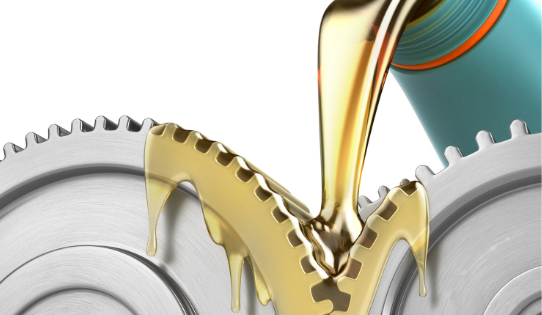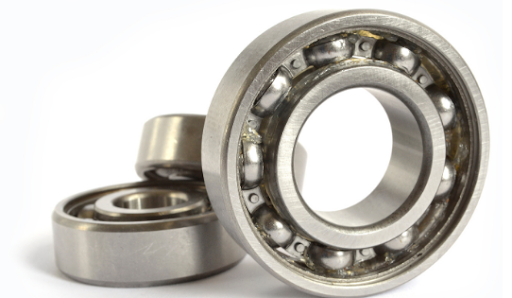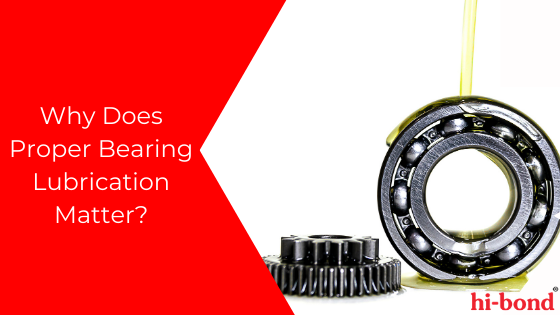Lubrication is to bearings, what nutrition is to humans.
The lifespan of bearings is majorly dependent on various facets of lubrication. The type of lubricant used, the frequency, the viscosity is a few notable mentions that affect the life of a bearing.
Here are 4 reasons why proper bearing lubrication matters:
1) Impact of friction
- Bearings in their basic sense reduce friction by movement. This movement can be either rolling or sliding.
- However, for bearings to reduce friction to its maximum potential, it needs to move smoothly. And this is facilitated by the application of a lubricant.
- The impact of lubrication on friction is two-fold. Excess of lubricant increases friction, by reducing the speed at which the adjacent parts were moving. And the lack of lubricant in bearings has several impacts. From contamination to wear and tear, it can be fateful for mechanical components to operate without bearings.
- Journal bearings are extensively used in high-temperature areas. The automotive internal combustion engines comprise a lot of journal bearings. Likewise, they are also used in the crankshafts, piston pin joints amongst others.
- With this type of bearing popular, across the automotive industry, its quality of reducing friction must be top-notch. Hence, these bearings must be regularly lubricated well. It keeps the bearing movement seamless and reduces friction, as intended.
2) Improper lubrication leads to wear and tear
Bearings are designed and manufactured for long-term use. Their lifespan, however, is dictated by its lubrication.

- The better the lubrication, the better the workflow. If the bearings are not lubricated well, or regularly, they work inefficiently. They start to gnash against the surface of the moving parts, wearing them out.
- Lack of lubrication means more friction, which means the bearing is in direct contact with the parts. This contact with the surface aggravates severe wear and tear.
- Without lubrication, it is not only the bearings that suffer wear and tear. The moving parts surrounded by bearings also face wear and tear. Over time, this wear and tear may have catastrophic effects.
- Imagine flange bearings used in the huge industry of machine construction. They are the drivers of the manufacturing process. Given the volume and extensiveness of flange bearings’ use, lubrication is a must.
3) Affects the presence of contaminants
- One of the most common reasons behind the failure of bearings is the presence of contaminants. Oils are used to compliment the lubricants already present in the bearings. The viscosity of the oils is a determining factor of its utility.
- Oils with low viscosity levels ensure the movement is quick. Its thin layer allows for friction to be reduced without altering the course of the movement.
- However, oils are prone to be contaminated. Its viscosity calls for minuscule solid components to mix with it. Moisture in the oil is also an important facet. If moisture levels increase in the oil, the viscosity of the oil reduces by a great margin.
- By lubricating the bearing regularly, the viscosity is maintained. In the absence of lubrication, the void and the increased friction allows for contaminants to settle in.
- The solid residues are a matter of great concern for the machines. They will have to be cleared out before they are lubricated again. Any overlapping of contamination and lubrication will be ruinous in the longer run.
- This is usually the case with outdoor machinery that contains bearings. Farm machinery and pumps use bronze casting bearings, at scale. Hence, they are prone to contaminants.
4) Lubricated bearings resist corrosion
Proper lubrication of bearings often means there is no scope for debris to be found in the components. On the flip side, lack of lubrication creates a void. This creates a pathing for water, sand, dust, and other debris to accumulate. The inability to identify this debris and to remove it adversely impacts the health of the bearings.
- The key point to note is corrosion does not happen overnight. The components corrode over a long period. This timeframe results in many incidents of machine breakdowns due to improper bearings.
- Since corrosion is slightly difficult to identify, it is often ignored. An ideal example would be the corrosion faced by flange bearings used in the textile and baggage industry.
- They are very compact and tiny. Hence, it is often difficult to spot the bearing itself. From this, to identify corrosion is tough.
However, these are well lubricated with regards to the quality and frequency of the lubricant. This ensures, irrespective of where it is used, the lubricants are to protect the movement.

In addition to the aforementioned reasons, there are other advantages of having bearings lubricated. The functioning of a mechanical component that contains well-lubricated bearings is highly reliable.
Why? Ideally, with correct lubrication, bearings are more efficient at their work. The reduction in friction turns effortless, with proper lubrication. Also, regularly lubricating bearings ensure a steady growth in its lifespan.
There is also one more reason why bearings need proper lubrication. The reason is being the self-regulation of operating temperature.
Let us understand this with a simple equation: Lack of lubrication, lots of contacts, heat is generated. And on the flipside, the temperature is regulated.
Not many consider this as an investment, but let me tell you, bearings are an investment for your business. And pick the best bearings for extraordinary returns and longevity. Click here to invest in quality bearings that are backed by 30 years of rich experience.




